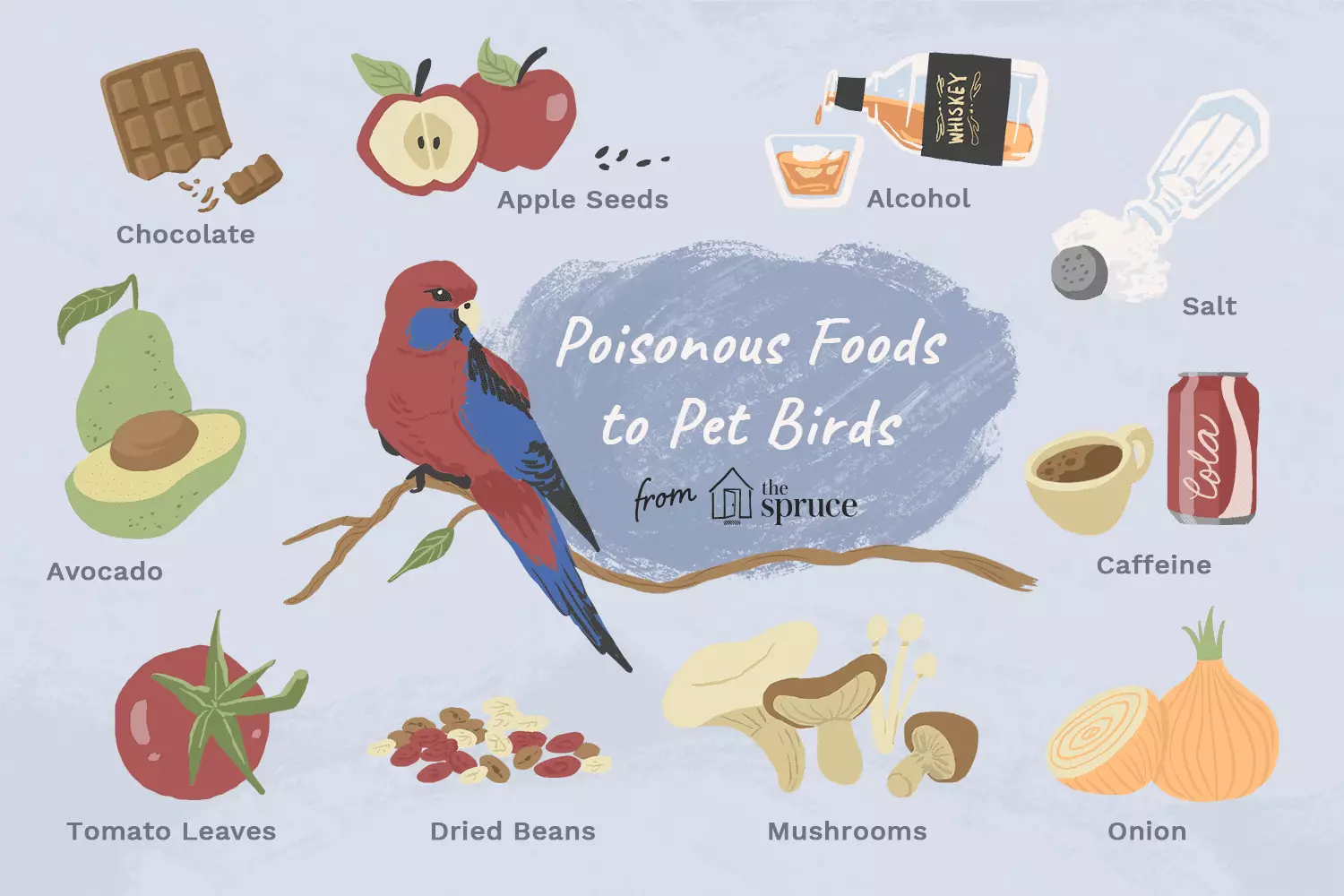As pet owners, we often want to share our culinary experiences with our beloved feathered friends. However, what we may consider a delightful snack could potentially spell disaster for our avian companions. Understanding which foods are detrimental to birds’ health is vital for any responsible pet owner. This article explores several common items that can harm birds and offers safer alternatives for treats that not only satisfy their taste buds but also ensure their well-being.
Chocolate is a quintessential treat for humans, yet its allure does not extend to pet birds. Unlike people, who can indulge in chocolate without immediate consequences, birds are sensitive to theobromine and caffeine found in chocolate. These compounds lead to gastrointestinal issues like vomiting and diarrhea initially. Nevertheless, the insidious effects of chocolate don’t stop there; they can also disrupt a bird’s central nervous system, culminating in seizures and potentially fatal outcomes. Educating ourselves to never share chocolate with our birds is a straightforward step that can avoid needless tragedies.
While many fruits are healthy and safe for birds, some hazardous elements linger in specific parts of these fruits. Take apples, for instance: while the flesh is typically safe, the seeds contain trace amounts of cyanide, a potent toxin. Additionally, pesticides commonly coat the skins of fruits. Thus, before offering apples or similar fruits like cherries and peaches, it is crucial to thoroughly clean and core them. Remove any seeds or pits, and ensure that fruits provided are toxin-free to promote your bird’s health.
It seems almost unthinkable to allow a bird near a cocktail, but in an environment where drinks are left unattended, curious birds can consume varied substances, leading to alcohol poisoning. Alcohol acts as a depressant in birds, undermining their central nervous system and impairing organ functions, often resulting in dire consequences. The takeaway is clear: if you’re hosting a gathering or sipping a drink, prioritize the safety of your bird by securing them in a cage or a safe area away from potential dangers.
While sodium is necessary for all living beings, moderation is key, especially for birds. Excessive sodium intake can lead to severe health issues such as increased thirst, dehydration, and kidney dysfunction. Many pre-packaged foods contain high salt levels, so vigilant scrutiny is necessary. Providing fresh, home-cooked meals can help circumvent the risks associated with processed high-salt foods, ensuring your bird’s diet remains balanced and safe.
The Avocado Controversy
Avocados have become a popular food item but remain a topic of discussion among avian experts. The skin and pit of avocados have been associated with serious cardiac distress in birds, leading some to classify them as highly toxic. Given the uncertainty surrounding avocado safety in different bird species, it’s wise for pet owners to err on the side of caution. Keeping avocados and their derivatives out of reach is the best policy for ensuring your feathered friends lead a healthy life.
Mushrooms: A Fungal Hazard
While mushrooms are often a common part of human diets, many varieties can be destructive to birds. Certain species can lead to liver failure, making it crucial to avoid feeding raw or cooked mushrooms altogether. Instead, opt for bird-safe vegetables that provide essential nutrients without introducing harmful risks.
Avoid Caffeine Like the Plague
Caffeinated beverages are beloved by many, but introducing these drinks to pet birds can lead to catastrophic health issues. High caffeine levels can cause heart irregularities, behavioral changes, and even severe health crises. Instead of risking your bird’s safety, consider serving fresh fruit or vegetable juices, which can hydrate and nourish your bird while keeping them away from harmful substances.
Beware of Onions and Beans
Many of us love flavoring our meals with onions and garlic; however, these can be toxic in substantial quantities for birds. Prolonged exposure to these ingredients can lead to alarming issues such as hemolytic anemia, characterized by severe respiratory problems. Similarly, while cooked beans can be tasty treats for birds, raw beans pose a significant risk due to a toxin called hemagglutinin. This highlights the importance of understanding not just the edibility but also the preparation and safety of foods intended for our pets.
The safety and health of our pet birds rest firmly in the hands of their caretakers. By educating ourselves about the myriad of common foods that can pose dangers to our avian companions, we take significant strides in preventing harmful incidents and ensuring their long, healthy lives. Always prioritize bird-safe foods and consult with avian veterinarians when in doubt, as the ultimate goal is to cultivate a safe and nurturing environment for these beautiful creatures.

